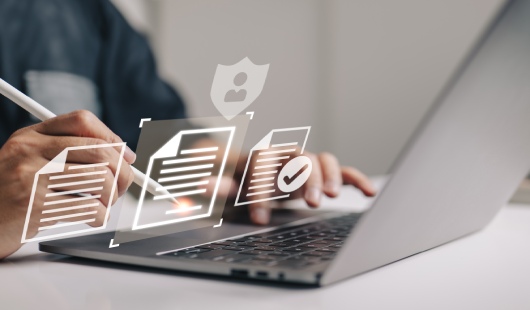-
Smart contracts are the backbone of decentralized finance (DeFi) and blockchain technology. A smart contract development company can help create a secure and transparent framework for executing complex transactions and safeguarding sensitive data. However, security is a challenge that needs to be solved in a fundamentally new way if blockchain is truly the technology that shifts paradigms. This blog explores essential best practices for robust smart contract development using Solidity, ensuring security against potential attacks and vulnerabilities.
Smart Contract Security: Best Practices
The creation of strong and secure smart contracts in blockchain involves following best practices-
Simplicity for Security
Emphasizing the importance of simplicity in smart contract security, we can reduce the attack surface and make audits more manageable. By prioritizing well-written, concise, and documented code, and breaking down complex functionalities into modular parts, we can enhance the reader's understanding of the topic.
Continuous Security Vigilance
Security should be integral to the development lifecycle, not an afterthought. Understand common vulnerabilities like DoS attacks, reentrancy, and integer overflows. Use tools like SafeMath and adhere to secure coding practices.
Also, Check | Best Practices for Smart Contract Development
Granular Access Control
Implement access control measures using modifiers like public, private, and internal. Consider role-based access control (RBAC) for nuanced permission management, ensuring only authorized entities access specific contract functionalities.
Input Validation
Thoroughly validate user inputs to prevent malicious or invalid data from compromising the contract. Data type validation, range checks, and sanity tests filter out erroneous inputs.
Graceful Error Handling
Anticipate and handle errors gracefully using required statements, specific error types, and revert functionality. Proper error handling ensures the contract responds appropriately to unexpected scenarios, minimizing potential vulnerabilities.
You may also like | AI-Driven Smart Contracts: Merging Intelligence with Automation
Caution with External Libraries
While external libraries can enhance functionality, integrate them cautiously after assessing their security implications. A vulnerability in an external library can compromise the entire contract's security.
Stay Updated
Staying updated on security tools, best practices, and new vulnerabilities can help us stay vigilant against evolving threats. We can also empower the reader by engaging with the developer community, participating in discussions, and leveraging resources like bug bounty programs and security audits.
Gas Optimization
Optimize gas usage to reduce transaction costs and improve user experience. Utilize view and pure function modifiers to minimize gas consumption, making the contract more efficient and accessible.
Leverage Decentralized Oracles
Depend on secure data feeds from decentralized oracles to obtain reliable information from multiple independent sources. Decentralized oracles enhance decision-making capabilities while mitigating the risks associated with centralized data sources.
Also, Read | Getting Started with BNB Smart Chain Development
Formal Verification
Consider formal verification techniques for critical contracts. Formal verification uses mathematical proofs to ensure the code is free from specific vulnerabilities, adding an extra layer of assurance to the contract's security.
Regular Security Audits
Regularly conduct security audits by qualified professionals to identify and address potential vulnerabilities. Security audits provide valuable insights and recommendations to strengthen the contract's defenses.
Conclusion | Smart Contract Security Practices
In conclusion, building secure smart contracts is an ongoing process that requires proactive security measures, continuous learning, and collaboration within the blockchain community. Following these proven best practices and staying updated on emerging threats can create a resilient and secure environment for decentralized applications, fostering trust and confidence in blockchain technology.
Building secure and robust smart contracts is essential for the success of any blockchain project. At Oodles Blockchain, we have a team of experienced smart contract developers who are well-versed in such best practices. Contact us today to discuss your project with our expert smart contract developers. We'll help you create secure, efficient, and scalable smart contracts that form the foundation of your innovative dApp or DeFi application.

Our Offices
INDIA
Emaar Digital Greens, Sector 61,
Gurugram, Haryana
122011.
Welldone Tech Park,
Sector 48, Sohna road,
Gurugram, Haryana
122018.















